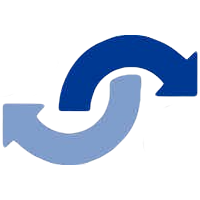
If you’re anything like me, it doesn’t start when you walk up to the reception desk to check in. It actually begins the day before as you’re lying in bed. You run through anticipated questions, consider your chances of landing the job, and of course, ruminate on how badly you want it.
I’ve spent the entire night stressing over interview prep before. I’ve upended my closet and drawers, trying on every possible combination. I’ve tweaked margins last-minute on resumes, printing and reprinting. Not exactly the best thing to do at 3AM, hours before you’re supposed to present your best self to a room full of strangers.
Fortunately, you can make better use of the 24 hours before your interview by preparing and packing everything you need. Instead of panicking about whether you’ll impress and how, here’s a solid list of ways to step into that lobby feeling shockingly prepared.
PEN AND PAPER
This may sound outdated, but in an interview, taking notes on your phone is absolutely unacceptable.
Pull out a notebook as soon as you walk in the room, just in case. It’s helpful to have your tools in front of you, plus it’s impolite to begin rummaging through your bag as your interviewer is speaking. Not to mention, you may miss an important fact about your interviewer or the role itself.
COPIES OF YOUR RESUME
Duh. But we’re human beings and sometimes overlook the obvious (at least until it’s too late) so: print multiple copies of your resume and pack them the night before. On almost every interview I’ve been on, the interviewer completely understated the number of people that were attending. I recently went on one where I met with six different people in the course of two hours. Yes, people can share, but they’ll remember that they didn’t have to.
It works in your favor to overcompensate. Think of it as an opportunity to show attributes that they’d value in a future employee. So rule of thumb: 10 copies! You’d rather have too many, than not enough.
YOUR ORIGINAL COVER LETTER
You don’t need to hand this to the interviewer, but in the event that they ask you about something you mentioned in your first email, you’ll have it on hand. It also helps to review what you wrote the night before (especially if you wrote the letter months ago) to make sure they don’t catch you with a blank look on your face.
COMFORTABLE SHOES
Pack a pair of sneakers or flats in your bag. Seriously. I can’t tell you how many times I’ve had to walk numerous New York City blocks (quickly) to get to an interview. Chances are you’ve gone to one before and realized you parked farther away than you thought. By heading to the building in sneakers, you’ll be able to move swiftly if you’re running late and walk back to your car more building safely as your post-interview shaky legs recover. Just change into your heels before walking in.
A MIRROR
If you’re lucky, you’ll have a moment to touch-up in a bathroom before your interview starts and make a last-minute teeth check. Bring makeup if you wish, but definitely bring your own mirror. You never know what sort of lighting you’ll find or whether you’ll have the opportunity to reach a restroom before your first handshake.
A SPARE PAIR OF TIGHTS (IF APPLICABLE)
You will get a run in your tights on the day of your interview. You really will. Pack a back-up pair just in case. Oh, and it doesn’t hurt to hang another blouse in the back seat of your car in case of spills.
AN IPAD
This is a game-changer. Even if you don’t have one, borrow one. The night before, open tabs for your online portfolio, your LinkedIn profile, and any company sites, articles, or other relevant web links that you might touch on during your interview. Being able to pull up real, visual examples of your past work—instead of just describing them—will earn you major points.
A CHEATSHEET
I’m sure you’ve been told to do your research before interviewing for the job. But I’ll be the first to admit, despite all my research, when I’m nervous I forget my eloquent statements about why I’m perfect for the job. And that is why I bring along a cheatsheet.
Here’s how it works: I make bullets about the points I want to cover when speaking to my interviewer and write them on the same page where I take my notes. That way, if I feel I’m stumbling or at a loss for words, I have a few lines to get me back on track. Furthermore, the preparation itself works as a security blanket for me. I innately feel more confident with my cheatsheet in hand.
BUSINESS CARDS
In the event that you arrive and do meet more people from the team than you were expecting (see our note on resumes), don’t hesitate to either hand those people your business card (if the timing feels appropriate) or leave some along with copies of your resume at the end. Tell your interviewer that you’re happy to answer any questions anyone from the team has and that they can contact you at the address on your card. If you don’t have personal business cards, get some. Check out MOO to do a professional job of it.
ACTUAL PRINTED QUESTIONS FOR YOUR INTERVIEWER
I can’t tell you how crucial questions are to have on hand. Often times, people rely on their memory, and while it’s great to ask some organic questions based on your conversation, the key is to avoid asking basic questions that don’t help anyone.
Interviewers will always ask, “Do you have any questions?” and that’s where thorough research will set you apart. Apply some research and creativity. To get you started, contemplate your interest in the job itself. Then look for trends in the industry that spark your curiosity.
But beyond careful preparation, one of the best moves I’ve ever made was actually printing out those questions and having them on hand to ask. I’ve come prepared with pages of questions before, some detailed, some open-ended, but all relevant. If I found myself stuck, I’d say “I had some questions before the interview, do you mind if I ask a couple?”
My interviewers were impressed and admired how prepared I was. They knew what I was asking was not off the cuff, but that I had put time and effort into drafting them.
A “THANK YOU” NOTE
It can make or break a candidate…bottom line. Although, it’s become a formality in the interview process, a handwritten thank you note can leave a great impression. You’ve gone the extra step to thank the interviewer for the time, acknowledging they’re time is just as precious as yours.
Make your note sincere, thanking them for their time. This is not your “real” thank you, incidentally. When you get home, take a few minutes following the interview to reflect on your experience and write a note that is really from you and based specifically on what you learned in the interview (you can send this note via email). We’ve got even more tips on writing a killer follow-up here.

